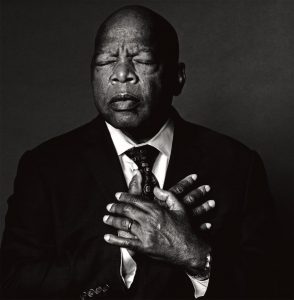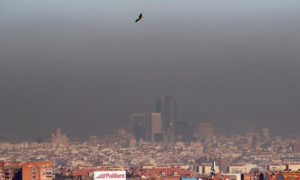U.N. agency warns of human costs of ‘mismanaged’ globalization
Dozens of poor nations have yet to regain their pre-pandemic levels of overall well-being, amid signs that the pandemic may have permanently depressed the world’s development trajectory, according to a U.N. report.
Four years after societal lockdowns disrupted the global economy, every affluent nation has regained its pre-pandemic score on a U.N. ranking called the Human Development Index (HDI). Yet half of the world’s poorest countries, including Nigeria, Pakistan and Sierra Leone, continue to languish below their 2019 readings.
After its pandemic-related decline, the global index last year finally topped its precrisis level. But unlike the precrisis era, when developed and developing countries advanced at similar rates, today the world is experiencing a “rich man, poor man” recovery.
“The gap between the richest and the poorest in our world has widened. … We face the risk of having permanent losses in human development unless we change course,” said economist Pedro Conceição, the U.N. report’s principal author.
The United Nations in 1990 introduced the index — which blends a population’s life expectancy, years of schooling and per-person income — as a broad gauge of human development. This year’s HDI analysis sketched a gloomy picture of a world that, while materially richer than in the past, is deeply stressed, politically divided and shadowed by war.
Not since 1945 have there been so many cross-border armed conflicts. They forcibly displaced 108 million people in 2022, a number greater than the population of Germany and more than 2.5 times the 2010 figure, the report said.
Countries are increasingly turning inward at a time when global challenges such as climate change and the rise of artificial intelligence require a collaborative response, said Achim Steiner, administrator of the U.N. Development Program, which produced the assessment.
UNDP officials called for greater financial support for “global public goods,” such as vaccine development and climate change mitigation efforts, and said political leaders must “dial down the temperature and push back on polarization, which poisons practically everything it touches and impedes international cooperation.”
The root of the problem is world leaders’ failure to properly manage globalization, which lifted 1.5 billion people out of crushing poverty in the developing world while leaving many factory workers in developed countries like the United States feeling they had paid the price, U.N. officials said.
This political failure fueled the growth of inequality and inflamed popular resentments that have left societies — and increasingly the global community — unable to agree on joint action.
The most popular and interesting stories of the day to keep you in the know. In your inbox, every day.
The backlash to “mismanaged interdependence” is a product of both economics and culture, Conceição said.
People in communities that suffered relative economic decline have concluded that the system is not working for them. And under economic stress, many individuals have sought solace in shared identities that are defined in opposition to other groups, leading to polarization.
“What we’re observing in many countries is that people are becoming clustered in groups in which they disagree — not on a few issues — but on almost everything,” he said.
Worsening political polarization within and between nations is producing “gridlock” on obvious needs, such as helping less-developed countries cope with the effects of climate change, the report said. Polarization has increased since 2011 in more than two-thirds of countries.
A deep malaise also stalks people in countries around the world. Two-thirds of those surveyed worldwide say they have no influence over their government’s decisions. More than half say they have no, or only limited, control over their own lives.
“If you only measure progress or advances in development by income, by per capita income, per capita GDP, you’re missing a significant part of what actually defines a human being’s perception of the conditions under which he or she lives,” Steiner said.
The report’s authors also warned about a rising tide of popular support for anti-democratic leaders. Though surveys show that roughly 90 percent of people around the world favor democracy as an objective, more than half of the world’s population now backs political figures who threaten to undermine it in practice, they said.
The wave of populism that has spread across the United States, Europe and Latin America threatens progress on human development, according to the study, which cited research showing that populist governments preside over lower economic growth.
With nations still bound together by trade, technology and finance, globalization should be reformed, not abandoned, the report concluded. More attention must be devoted to environmental concerns, supply chain resilience and the needs of heavily indebted developing nations.
“Rather than be unwound or reversed, globalization can and should be done differently,” the report said.
David J. Lynch is a staff writer on the financial desk who joined The Washington Post in November 2017 after working for the Financial Times, Bloomberg News and USA Today.




